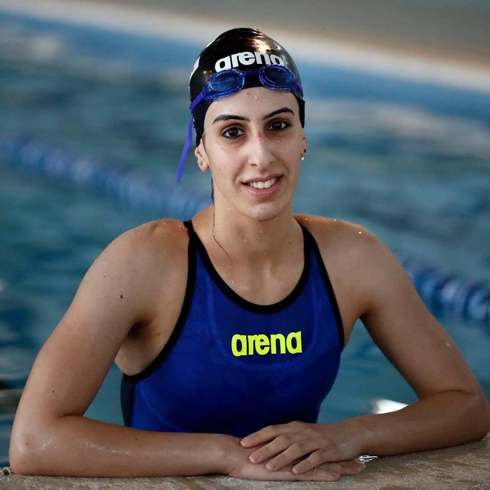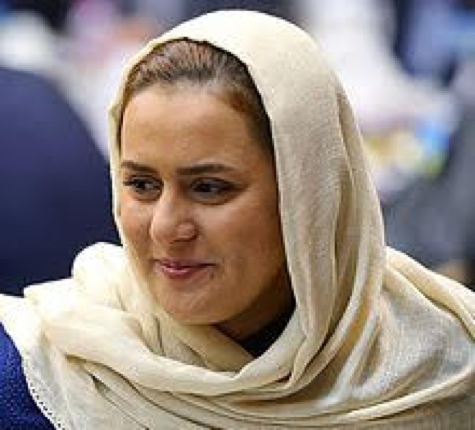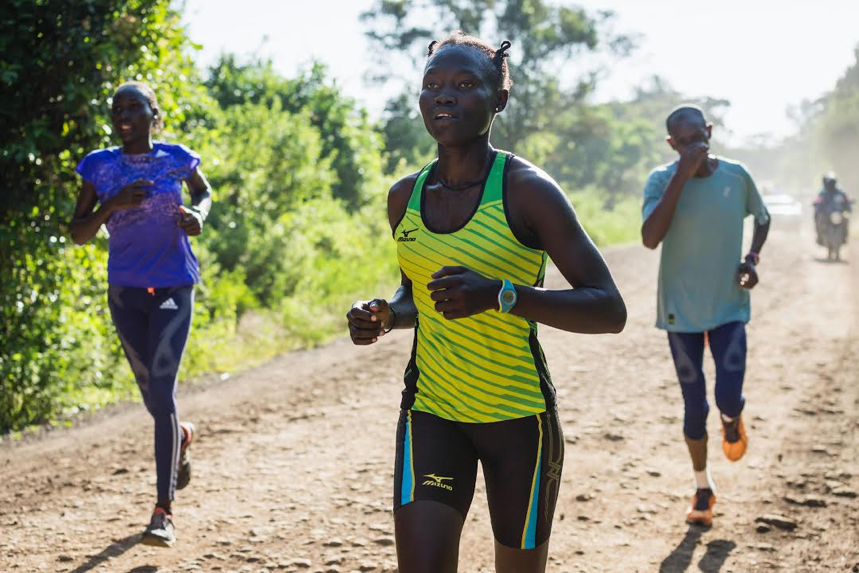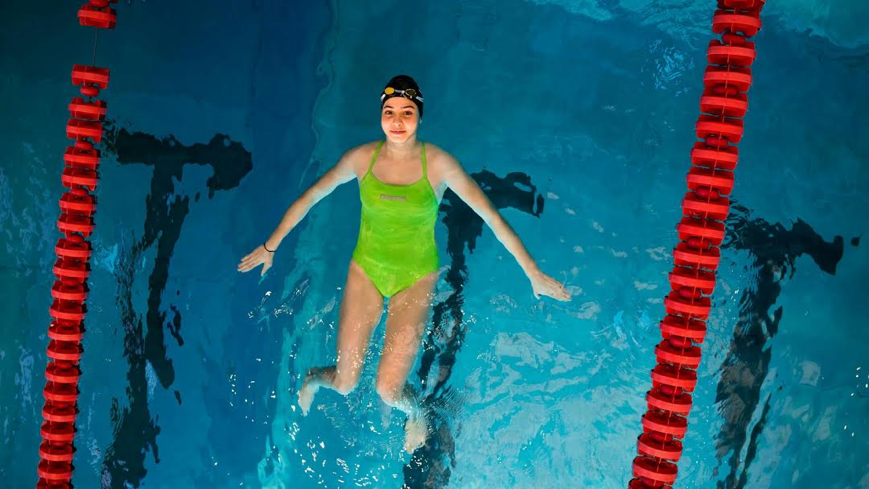As the 2016 Olympics draw near, athletes are gearing up and doing some last minute training before the games. Each of them have stories of how they reached the Olympics, but some of those stories stand out from the rest. We highlight the narratives of 5 women from Syria, Palestine, Iran, Saudi Arabia, and South Sudan who have overcome the obstacles standing between them and Rio. Battling everything from injury, sexism, racism, and war, these women not only bring important social issues to light, but they are proof that excellence can flourish anywhere.
Mary Al-Atrash
Country: Palestine
Age: 22 years old
Event: Swimming; 50 m freestyle
The Israeli occupation has made it nearly impossible for Palestinians to travel, work, or receive an education, much less train for the Olympics. Yet Mary Al-Atrash from Beit Sahour in the West Bank has overcome the obstacles and is on her way to Rio. Unlike her neighbors in Jerusalem, Al-Atrash does not have access to Olympian sized pools or training partners due to the conflict with Israel. She will compete in the 50 meter freestyle, despite the fact that she has only trained in pools half that size. Her goal is to inspire other Palestinian athletes who dream of competing in the future.
Zahra Nemati
Country: Iran
Age: 31 years old
Event: Archery
Black belt Zahra Nemati originally competed in Taekwondo for the Olympics until she was injured in a car crash back in 2003. The crash paralyzed both of her legs, but that never stopped her from competing. A few years after the incident, Nemati decided to learn archery and won third place in the National Championships after only 6 months of training. She was then chosen to compete for Iran in the 2012 Summer Paralympics, where she became the first Iranian woman to win a gold medal. Nemati has been given the honor of being the flag bearer for the Iranian team during the Parade of Nations at this year’s opening ceremony.
Sara al-Attar
Country: Saudi Arabia
Age: 22 years old
Event: Athletics, 800 m
This is only the second time that Saudi Arabia has sent a woman team to the Olympics, and Sara Al-Attar has competed both times. Al-Attar was invited by the International Olympics Committee (IOC) to run in the 800 meter event, a distance that she hasn’t run since high school. Although she didn’t win any medals, al-Attar expressed her excitement for her chance to participate, hoping to inspire the “generations of girls in Saudi Arabia that will grow up with the possibility of competing in the Olympics as an option, and that is powerful.” Saudi Arabia is also sending three other women to the games: Lubna al-Omair (fencing), Wujud Fahmi (judo, under-52kg) and Cariman Abu al-Jadail (100-meter dash). Go Saudi women!
Rose Nathike Lokonyen
Country of Origin: South Sudan; host NOC: Kenya (Refugee team)
Age: 23 years old
Event: Athletics, 800m
Rose Nathike Lokonyen fled South Sudan when she was only 10 years old to live in the Kakuma refugee camp in Kenya. At the refugee camp, Rose participated in a 10 km race after she was encouraged by her teacher. Having never competed in a race before or any shoes to run with, Lokonyen was surprised when she placed second in the running competition. Today she is proud to be a member of the Refugee Olympic Athletes (ROA) team, excited to represent her people in Rio and bring awareness for other refugees like her across the globe. Lokonyen hopes to one day “conduct a race that can promote peace, and bring people together.”
Yusra Mardini
Country of Origin: Syria; host NOC: Germany (Refugee team)
Age: 18 years old
Event: Swimming
Yusra Mardini will be joining the other 9 athletes on the Refugee Olympic Athletes (ROA) team, the first team of its kind allowing refugees without a country to compete in the Olympics. Mardini left her home in Damascus behind about a year ago with her sister Sarah and is currently living in Germany. The crisis in Syria made training very difficult for Mardini, who recalls sessions being cancelled due to the war, or “sometimes you had training but there was a bomb in the swimming pool.” She dreams of one day honing her talent for swimming and qualifying for the Olympics, but her participation alone is a message to other refugees such as herself to follow their passions no matter the obstacles they may be up against.
By: Malek ElSayyid



































ALL OF THESE WOMEN ARE MY HEROS!!!